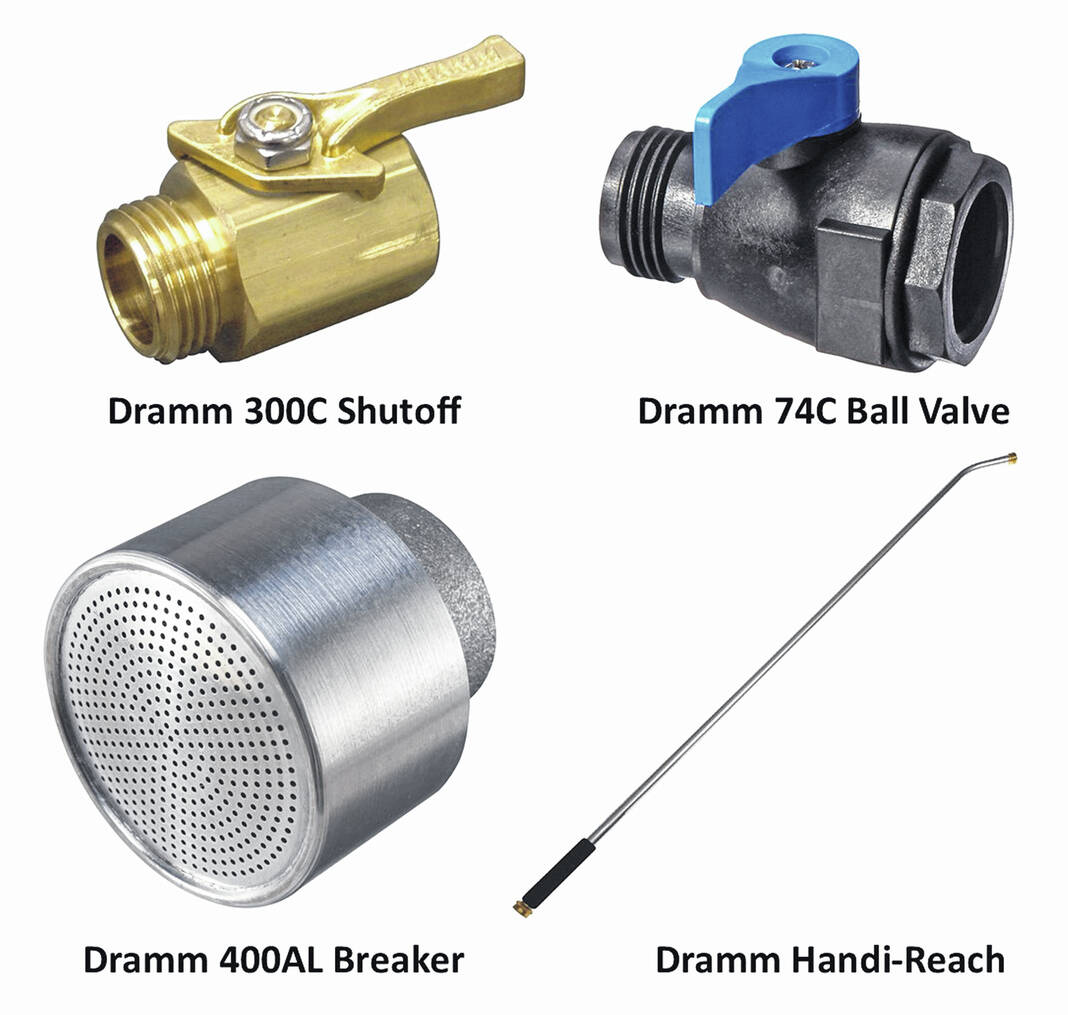
These commercial watering tools make watering your garden quick, easy and efficient.
GoodSeed Farm photo

Hot, dry weather is hard on your plants, whether you are a vegetable gardener or have landscaping to maintain. A long period of sunny, breezy weather sucks the moisture right out of plant foliage. During extended drought, established plants will eventually use up the stored moisture in the ground. A mature shade tree can consume fifty gallons of water in a single day! Unless you do something to replace soil moisture, even drought-tolerant plants will start to show stress, and can even die from lack of water.
We’ve tackled the subject of proper watering techniques and timing in previous columns. Now let’s look at how to make watering easier, faster and more effective by having the best possible watering tools. After all, if you can give your plants a good drink quickly and easily, you’re more likely to water them when they need it. If it’s hard to do and takes a lot of your time, you’ll most likely delay until the damage is done.
Worse yet, you may take the time to water and yet not satisfy your plants, despite your time and effort. It’s very important to have the right watering tools, and we’ve found that most homeowners don’t. Your garden hose and nozzle, pistol-grip sprayer or “water wand” may be perfect for washing your car, but not at all appropriate for deep-root plant watering. It’s all about how many gallons per minute you can deliver.
We are veterans of the retail nursery/greenhouse business, where we had thousands of plants to water daily and many hundreds of feet of hose to manage. Easy, efficient watering starts with quality hose; hose that is easy to pull around, flexible, kink resistant, and easy to coil up. After decades of trying different brands at different price points, we have been most satisfied with “Flexogen” hose by Gilmour. You should have enough to reach the farthest corner of your gardens, a coil at each hose bib so you don’t have to disconnect and drag hoses from one faucet to another.
A key tool is the shutoff at the end of your hose. Commercial growers use “ball valve” shutoffs that have at least a half-inch opening, so they don’t restrict the water flow. Most garden hoses are 5/8” inch inside diameter, so any shutoff with less than a 5/8” inch opening will hold the water back, making it take much longer to get the same amount of water onto your plants. Forget about “big-box” imitations and look for commercial-duty shutoffs. We like the Dramm C300 brass ball valve, a rugged tool with a ½” inch opening. We also like the Dramm 74C Ball Valve. It’s smart to have this kind of shutoff at the end of every hose, so you don’t have to walk back to the spigot every time you want to disconnect hoses from each other.
Commercial ball valves like the Dramm C300 allow up to 19 gallons per minute of flow. That’s a lot, and it speeds up watering tasks tremendously, but how do you soften the water flow so you don’t beat up your plants or wash away your mulch? The best tool for this is another classic lifetime tool, the Dramm 400AL cast aluminum water breaker. Without any restriction of water flow, this lifetime tool puts out a gentle, precise pattern that won’t batter even the most tender blooms.
Most nurseries use an extension between the ball valve and the water breaker head, like the Dramm Handi-Reach. This allows you to reach underneath plants (so you don’t wet the foliage) without bending over. Again, the key is the inside diameter, so there’s no restriction in the water flow. Any restriction anywhere in your setup will slow you down.
These classic tools were introduced in 1945, before I was born, and continue to be the favorite of commercial growers. Their employees get paid by the hour to water, so it’s false economy to equip them with cheap “knockoff” tools. Your time is valuable too, so why waste it struggling with twisted, kinked-up hoses and cheap plastic watering tools?
Steve Boehme is a landscape designer/installer specializing in landscape “makeovers”. “Let’s Grow” is published weekly; column archives are on the “Garden Advice” page at www.goodseedfarm.com. For more information is available at www.goodseedfarm.com or call GoodSeed Farm Landscapes at (937) 587-7021.

